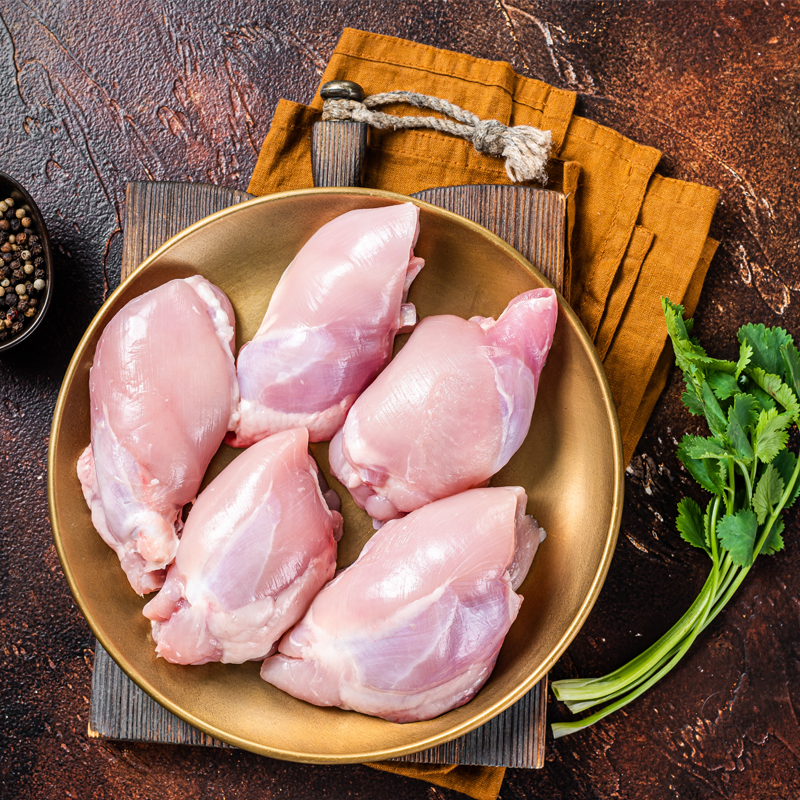
100 gr |
-- |
|
|---|---|---|
| Carbohydrate (gr) | 15.04 |
4928.47 |
| Protein (gr) | 3.59 |
1176.23 |
| Fat (gr) | 12.46 |
4083.43 |
| Fiber (gr) | 1.36 |
445.97 |
| Cholesterol (mg) | 14.64 |
4795.8 |
| Sodium (mg) | 325.27 |
106557.75 |
| Potassium (mg) | 392.16 |
128471.4 |
| Calcium (mg) | 78.15 |
25603.27 |
| Vitamin A (mg) | 46.04 |
15084.01 |
| Vitamin C (mg) | 6.16 |
2019.31 |
| Iron | 0.62 |
203.1 |
Chicken meat is a widely consumed and highly nutritious food, rich in protein, potassium, phosphorus, iron, and zinc. It is an excellent choice for those looking to maintain muscle health, support the immune system, and strengthen bones. However, for a healthier diet, it is recommended to consume chicken without the skin and prepare it using healthier cooking methods such as boiling, baking, or grilling.
The calories in skinless chicken thighs are 116 calories per 100 grams.
Chicken provides essential nutrients that benefit overall health. Here’s the approximate nutritional content per 100 grams of skinless, cooked chicken breast:
These nutrients make chicken a valuable addition to a balanced diet, supporting muscle growth, bone health, and immune function.
High-Quality Protein for Muscle Growth
Chicken is an excellent source of lean protein, essential for muscle development, repair, and overall body function.
Supports Heart and Bone Health
The phosphorus and potassium in chicken help maintain strong bones and regulate heart function and blood pressure.
Boosts the Immune System
Chicken contains iron and zinc, which play a vital role in immune system function and red blood cell production.
Low in Fat (Without Skin)
Skinless chicken breast is a lean protein option, making it suitable for weight management and a heart-healthy diet.
Aids in Metabolism
The B vitamins in chicken contribute to energy production and metabolism regulation, ensuring optimal body function.
Chicken skin contains high amounts of saturated fat and cholesterol, which can contribute to weight gain and heart disease. Consuming skinless chicken helps reduce unhealthy fat intake while still providing essential nutrients.
To retain the nutritional benefits of chicken while avoiding unhealthy fats, consider these cooking methods:
Avoid frying, as it adds excess oil and unhealthy fats, reducing the overall health benefits of the meal.
While chicken breast is often considered the leanest cut, skinless chicken thigh is another excellent option, especially for those looking for more flavor and tenderness without excessive fat. Compared to chicken breast, thigh meat provides:
By removing the skin and using healthy cooking methods, chicken thighs can be just as nutritious as chicken breast, with the added benefit of a richer taste.
Chicken meat is a nutrient-dense, high-protein food that provides essential vitamins and minerals. For the best health benefits, it is recommended to consume skinless chicken and prepare it using boiling, baking, or grilling methods. By choosing healthier cooking techniques, you can enjoy the nutritional advantages of chicken while maintaining a balanced and heart-friendly diet.